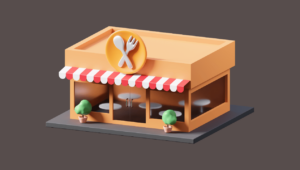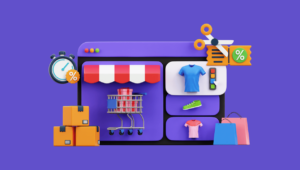Embarking on a career in website design is not just about embracing your creative flair; it’s a journey that intertwines the realms of art and technology. This field, dynamic and ever-changing, offers a plethora of opportunities for those ready to dive into its depths. Whether you’re a budding designer, a seasoned professional seeking growth, or somewhere in between, understanding the nuances of salary trends and arming yourself with strategic professional advice is pivotal. In this comprehensive guide, we’ll explore the multifaceted world of website design, providing detailed work salary insights and actionable professional tips to help you carve out and crafting a successful career path in this vibrant industry.
Understanding Website Design Salaries
1. Factors Influencing Web Designer Salaries
- Experience and Skills: The journey begins as an entry-level designer, often with a modest salary. However, as you climb the ladder, gaining experience and honing skills like advanced UX/UI design, responsive design, and mastery in various coding languages, your value skyrockets. Specializing in areas like e-commerce, mobile app design, or digital marketing can further boost your earning potential.
- Geographic Location: The geographic variable plays a significant role. While web designers in tech-centric cities like San Francisco, New York, or London may command higher salaries, these often come with a higher cost of living. Conversely, remote work has democratized earning potentials, allowing designers in less expensive areas to earn competitive wages.
- Freelance vs. Full-time: The freelance route offers flexibility and potentially higher earnings but requires a knack for business, such as client acquisition, self-marketing, and managing irregular income streams. Full-time roles provide stability and often come with additional benefits like healthcare, retirement plans, and professional development opportunities.
2. Average Salary Trends
Survey data reveals a broad spectrum in web designer salaries. Entry-level designers might earn between $35,000 to $50,000 annually, while mid-level designers see salaries ranging from $50,000 to $75,000. Senior designers and specialists, especially those in high-demand niches or with strong coding skills, can see salaries in the $90,000 to $120,000 range or higher. Freelancers, depending on their client base and project complexity, can surpass these figures, though their income might vary more dramatically. Guide to explore website design, providing work salary insights and professional tips to help crafting a successful career in this industry.
Professional Tips for a Thriving Career
1. Continual Learning and Skill Development
The digital landscape is in a constant state of flux, with new design trends, technologies, and tools emerging regularly. Invest time in learning advanced web technologies like CSS Grid, Flexbox, JavaScript frameworks, and CMS platforms. Follow industry blogs, enroll in online courses, and consider obtaining certifications in specific areas like Adobe Creative Suite, UX design, or front-end development with a professional design salary.
2. Building a Strong Portfolio Website Design Career
Your portfolio is the gateway to your career. It should be a living document, showcasing a diverse range of work including responsive websites, e-commerce platforms, and interactive web applications. Detail the process behind each project, highlighting your problem-solving skills and creativity. Personal projects can also be a great addition, showcasing your initiative and passion for the field. Keep reading this tutorial to explore website design, providing work salary insights and professional tips to help crafting a successful career in this business.
3. Networking and Industry Engagement: Website Design Career
Engage actively in the web design community. Attend workshops, conferences, and webinars. Join online forums and social media groups where you can share ideas, get feedback, and stay abreast of industry trends. Networking is not just about finding job opportunities; it’s about building relationships that can lead to collaborations, mentorships, and a deeper understanding of the design industry insights.
4. Understanding User Experience (UX) Website Design Career
In the current market, a strong grasp of UX principles is non-negotiable. Go beyond aesthetics; learn about user research, information architecture, and interaction design. Understanding how users interact with websites and what makes for a seamless and engaging user experience can significantly elevate your work and demand in the market.
5. Freelancing and Side Projects
Diversify your experience and income through freelancing or side projects. These ventures allow you to explore new areas, technologies, and work styles. They also help in building a broader network, improving your portfolio, and may even become a steady source of income or evolve into your own business.
Maximizing Your Earning Potential in Web Design
1. Embrace Emerging Technologies and Innovation
The digital world is in a constant state of innovation. Keep pace with emerging technologies like artificial intelligence, augmented and virtual reality, blockchain, and voice UI. This knowledge can be a game-changer, setting you apart in a crowded market and design industry insights.
For example, understanding how to integrate AI into web designs for more personalized user experiences can make you invaluable to tech-forward clients. Similarly, VR and AR are revolutionizing the way users interact with websites, especially in fields like real estate, education, and retail. By mastering these technologies, you not only expand your creative horizons but also become a sought-after designer for cutting-edge projects, significantly boosting your earning potential.
2. Specialize in High-Demand Niche Markets: Website Design Career
Diving deep into niche markets can be immensely profitable. Specializations like fintech, healthcare, and e-commerce come with unique challenges and demands. For instance, fintech web design requires a keen understanding of security and compliance standards, while healthcare website design demands accessibility and user-friendly interfaces for diverse age groups.
By mastering the nuances of these sectors, you can position yourself as a niche expert, commanding higher rates for your specialized knowledge and skills.
3. Develop Comprehensive Project Management Skills
Advanced career progression often involves overseeing projects or teams. Develop strong project management skills, including budgeting, scheduling, and resource management. Understanding the full lifecycle of a web design project, from initial client consultations to post-launch analysis, adds immense value to your role.
Learn to use project management tools and methodologies like Agile or Scrum to enhance efficiency and team collaboration. These skills not only improve your project outcomes but also make you a prime candidate for leadership roles, which typically come with higher compensation.
4. Seek Constructive Feedback and Engage in Mentorship
Actively seek out feedback from peers, clients, and mentors. Constructive criticism is essential for growth and improvement. Engage in mentorship, either by finding a mentor or participating in peer review sessions. A mentor with industry experience can provide invaluable advice, help you navigate career challenges, and open doors to new opportunities.
Remember, mentorship is a two-way street; as you progress, consider mentoring others to give back to the community and enhance your own understanding.
Website Design Career Conclusion
A career in website design is more than just a job; it’s a vibrant journey filled with continuous learning, creative exploration, and the opportunity to leave a digital imprint on the world. By staying updated with the latest industry trends, continuously refining your skill set, and strategically navigating the career landscape, you can achieve both professional fulfillment and financial success in this exciting field. Remember, in website design, your growth is limited only by your imagination and willingness to evolve.








